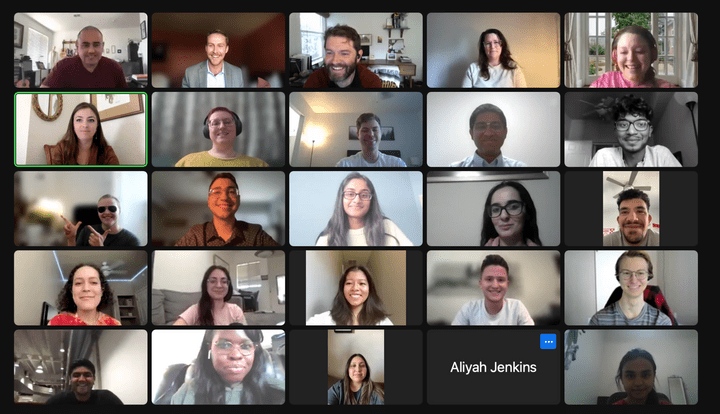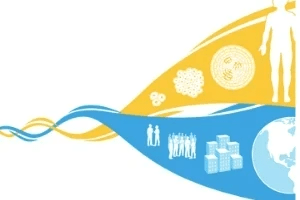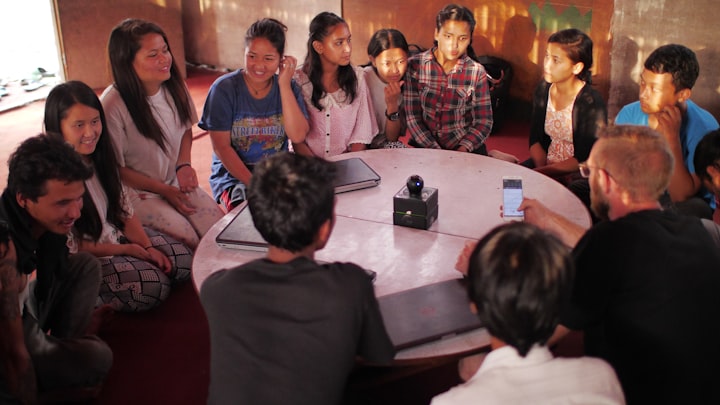
(e)-Mentoring - a tool for long-term success
I use the term "(e)-mentoring" to refer broadly to both mentoring (in-person relationships) and e-mentoring (online relationships). I study (e)-mentoring and its implications for students' success. I also translate my research into practice by creating, implementing, and directing mentoring programs at Arizona State University.
Below you will find more information about my research on (e)-mentoring and the programs I have developed.CURRENT RESEARCH PROJECTS

AI and Mentorship: Strengthening Relationships in a Digital Era
This project explores how AI is changing the way we give and receive mentoring. We examine when AI supports human connection, when it complicates it, and how mentors and mentees can use AI in ways that strengthen—not replace—relationships, trust, and professional growth.

Mentoring Climate Surveys
I am passionate about developing and administering mentoring climate surveys, particularly to graduate students across various departments, colleges, and universities, with the purpose of learning about students' experiences, needs, and wants in order to create responsive opportunities and programming to help the students persist and thrive in their studies.

Online undergraduate students' perceptions of e-mentoring
This project examines what individual characteristics may influence online undergraduate students’ perceptions of e-mentoring and their engagement in e-mentoring opportunities and relationships.
MENTORING PROGRAMS
These programs are offered at Arizona State University. We value Collaboration, Communication, and Community.

The Arizona Cancer Evolution (ACE) Scholars Program
Read our paper about the program - DOWNLOAD PDF
I co-founded the ACE Scholars Program in the Spring of 2021. The program provides scientific mentoring, R statistics tutorials, and professional development to both in-person and online students at ASU. The program is based in the Arizona Cancer Evolution Center (an NIH-funded center), Biodesign Institute at ASU.
While co-directing the program, I create and deliver professional development training to our students, and I oversee the work of a few research teams, such as the Language of Cancer, Metaphors of Cancer, and Science Communication and Outreach teams. For more information, please visit our website.

The Cooperation Scholars Program
Read an example syllabus here.
I co-founded the Cooperation Scholars Program in the Fall of 2022 at ASU. The Cooperation Scholars Program is offered through the Cooperation Lab and the Cooperation Science Network, both directed by Dr. Athena Aktipis.
The Cooperation Scholars Program features weekly seminars in which students learn about cooperation science and cooperation across systems, as well as professional development topics (which I lead). Furthermore, students are provided with training in various research methods and have the opportunity to engage in hands-on research in subsequent semesters.

The Zombified Media Z-team
Read an example syllabus here.
I co-founded the Zombified Media Z-team in the Fall of 2020 at ASU. The Z-team is offered through Zombified Media, an educational non-profit that uses new media to create educational content and communicate with broad audiences.
The Z-team provides students with science communication and outreach training as well we content creation and professional development.ACADEMIC WORK - PAPERS
Examining e-mentoring: Factors That Influence Online Undergraduate Students' Perceptions of E-Mentoring
This paper represents a part of my dissertation work. Here we find that digital competence and goal orientation are significant predictors of students' perceptions of e-mentoring.
The ACE Scholars Program: An Integrative Approach to Undergraduate Research Training
In this paper, we introduce the ACE Scholars Program, discussing the theory behind it (project and team-based learning), as well as program evaluation and students' statements of impact.








